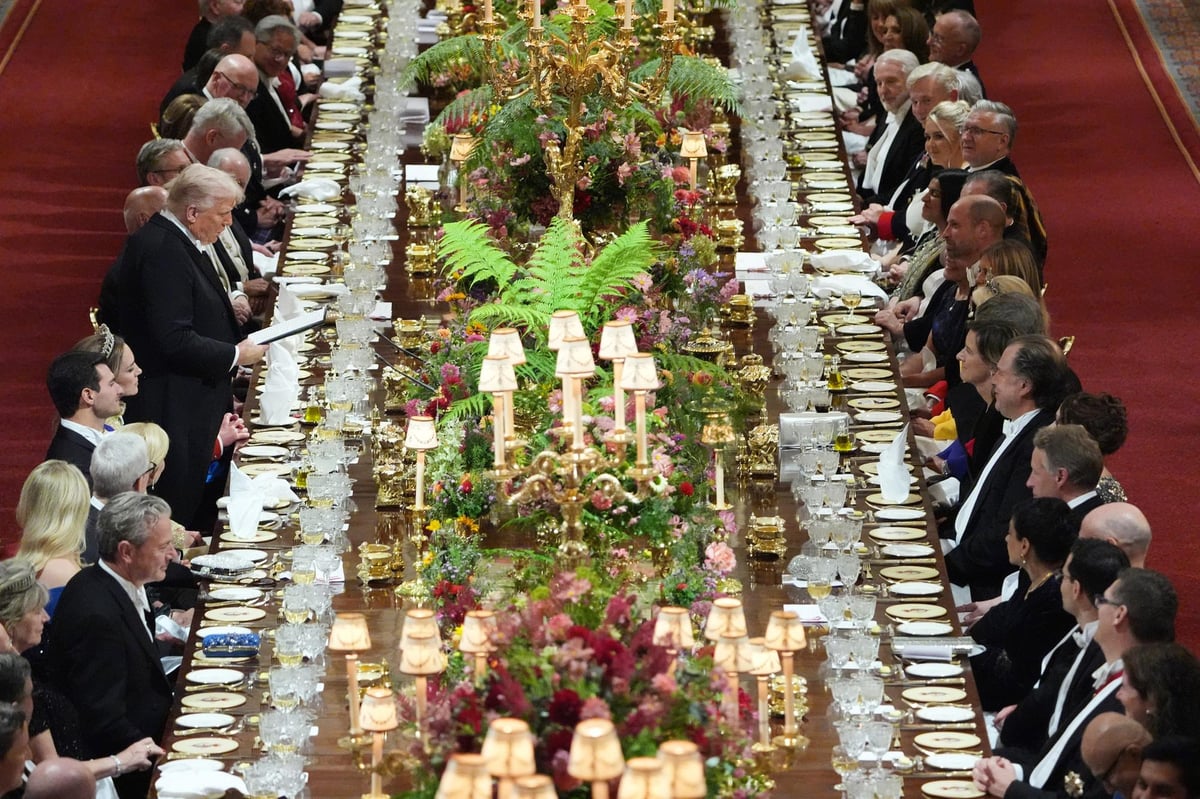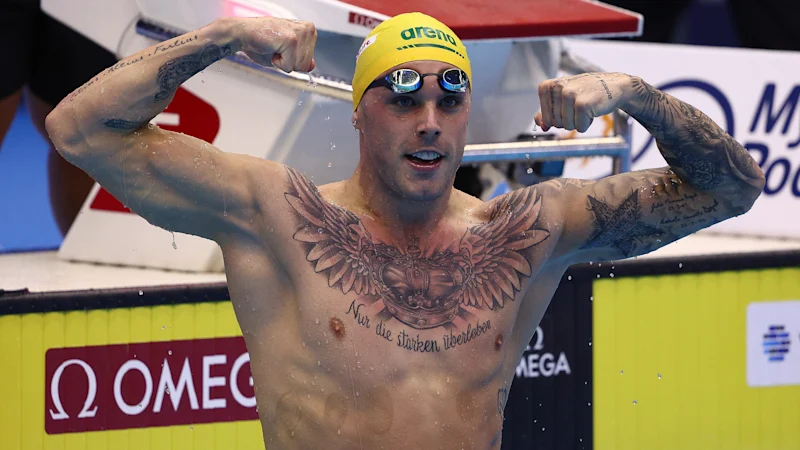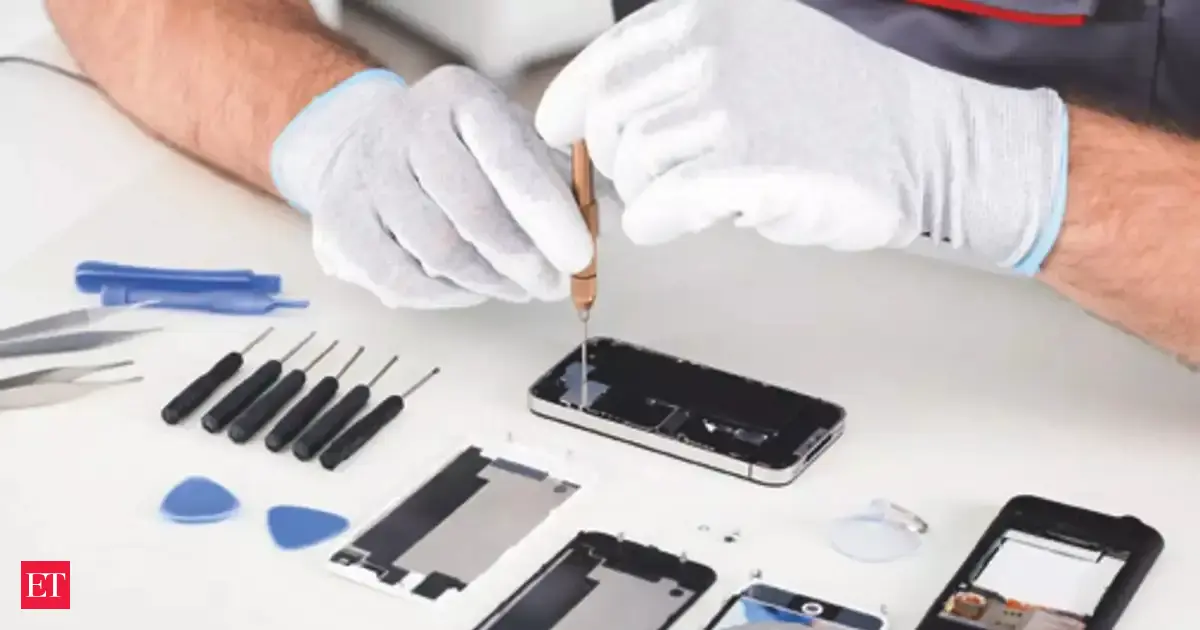By Euan McColm
Copyright scotsman

As the great and good of British politics prepared to dine with President Donald Trump on Wednesday evening, one MP was absolutely brutal in his condemnation of anyone who’d decided to attend. To go to the banquet was, wrote the SNP’s Chris Law, to admit “that it’s acceptable to support genocide in Gaza”. Shortly after posting his spicy – and facile – take on matters diplomatic on X, the MP for Dundee Central deleted it. Yikes! It turned out one of those attending the state banquet, hosted by King Charles in St George’s Hall in Windsor Castle – and, thus, endorsing “genocide” – was Law’s boss, John Swinney. To be fair to the nationalist MP, his attack on those who’d agreed to break bread with Trump was in keeping with the sort of lines the SNP has been delivering, lately. But last week was special and, having learned that noble leaders of noble nationalist movements would be sitting alongside the “genocide” cheerleaders, Law retreated. The SNP’s relationship with Donald Trump, now as warm as these things can be, was very poor for a very long time. Back in 2006, then Labour First Minister Jack McConnell appointed the tycoon – whose mother was from the Western Isles – to the GlobalScots network, a group of business “ambassadors” with ties to Scotland. After the SNP defeated Labour in 2007 and Alex Salmond became FM, that cosy relationship with Trump continued. But, by 2015, the nationalists had had enough of the brash New Yorker’s capricious ways. After Trump, then campaigning in his first run for the US presidency, called for a ban on Muslims entering the States, Salmond’s successor as First Minister, Nicola Sturgeon, removed his GlobalScot credentials. Since then, Trump has delighted in decrying successive SNP leaders as losers and very bad people. Today, Donald Trump is the leading figure of a populist right-wing movement with global spread, a politician whose actions bring regular condemnation from the SNP. In her recently published memoir, Frankly, Nicola Sturgeon recalled, with derision, her first conversation with him after his 2016 election victory. A ten-minute phone call with Trump, she wrote, “must rank amongst the most absurd” moments of her time as First Minister. “Did I know,” Sturgeon wrote, “he was Scottish? On his mother’s side? She was the best mother anyone had ever had. Scotland was a great country. Apart from our mad obsession with wind power, which was a danger to the future of humanity, didn’t I realise?” After the call ended, Sturgeon wondered whether she’d just woken from “a very bad acid dream”. But John Swinney doesn’t have a book but a country to promote. Swinney was the only leader of a devolved administration to attend Wednesday’s banquet. Northern Ireland’s Sinn Féin First Minister, Michelle O’Neill, boycotted the event, saying she was taking a “principled stance” in response to the USA’s position on Gaza. The Labour First Minister of Wales, Eluned Morgan, initially said that she would not be attending because of the death of a colleague but, in a later radio interview, said this was only “partly” the reason and mentioned the situation in Gaza and her broader political differences with the American president. Both O’Neill and Morgan have already enjoyed the easily-won praise of supporters for their highly-principled decisions not to have dinner at Windsor Castle. So, too, has Liberal Democrat leader Sir Ed Davey who, with touching optimism, said he hoped his “difficult” decision not to attend the event would send a message to Trump. Unsurprisingly, recently-elected Scottish Green Party co-leader, Ross Greer, was very much against Swinney’s attendance at the state banquet. Donald Trump was “one of the most dishonest, disgraced and dishonourable people in the world” and the “last person on Earth who deserves a banquet in their honour”. According to Greer, photos taken at the event would “tell the story of a British political class grovelling to a thin skinned fascist”. It would have been easy for John Swinney to have done as other leaders did, to have stayed away and to have condemned those who went along and bent the knee to an American president worthy only of contempt. It would also have been self-defeating. Donald Trump may be all kinds of terrible but he is the only American president currently available and, given he has the power – demonstrated by the £20million-a-month impact of US tariffs on the Scotch Whisky industry – to influence Scotland’s prosperity, it is incumbent on John Swinney to reach out rather than turn away. During a recent visit to the USA, the First Minister was invited to meet Trump in the White House where he pressed the president to cut tariffs on Scotch Whisky. That meeting was set up after Swinney had hosted the president’s son, Eric, in Scotland earlier this year and thanked him for the Trump family’s investment in the country. It is to Swinney’s great credit that he and his team have put in the diplomatic hard yards to build a relationship with Donald Trump. If the objective of the UK Government was to placate, contain, and flatter Donald Trump during his “historic” second state visit, then it was more than achieved. Leading the diplomatic effort on behalf of the Royal Family, King Charles and Kate, Princess of Wales, made a decent case for the retention of the monarchy and, during a period of terrible political instability, Sir Keir Starmer started to resemble a leader, again. But John Swinney’s role in the success of the state visit should not be underestimated. Last week, we witnessed UK state diplomacy at its finest. How ironic that a key figure in this Great British effort was the leader of the SNP.



